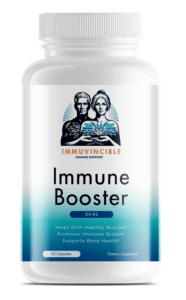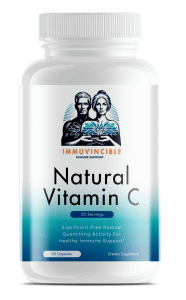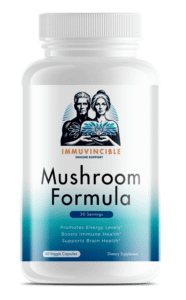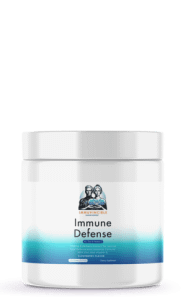Office workers face unique challenges when it comes to maintaining adequate levels of vitamin D. With long hours indoors,...
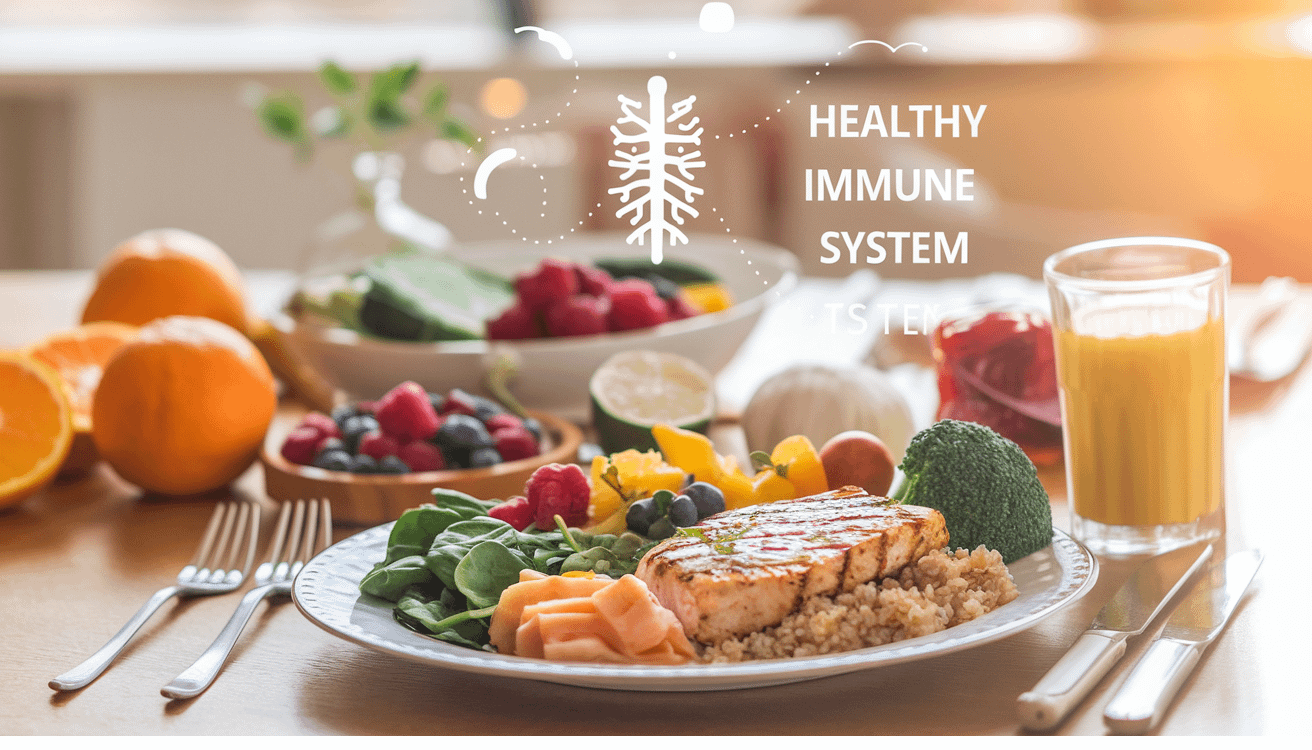
Eat Smart, Stay Healthy: Immune-Boosting Nutrition Tips
How the Immune System Works and Its Relationship with Nutrition
Before diving into specific foods, it’s helpful to understand how the immune system functions (in a nutshell). Our immune system is a complex network of cells, tissues, and organs working together to defend the body from infections. White blood cells, antibodies, and lymph nodes are just a few of the key players. However, to function optimally, the immune system relies on a steady supply of nutrients, which we get from food and supplements.
Nutrients act as the fuel and building blocks for immune cells. Without adequate nutrition, the immune response weakens, making it harder for the body to fend off pathogens (organisms that cause disease). A well-balanced diet filled with vitamins, minerals, and antioxidants helps to strengthen this defense mechanism. (It is really important to include minerals as a key part of your diet.)
Key Nutrients and Vitamins That Support the Immune System
Certain nutrients are particularly beneficial for immune health. Here are some key ones to focus on:
Vitamin C: Known for boosting the production of white blood cells, which are essential for fighting infections. Citrus fruits, strawberries, and bell peppers are great sources.
(A 4-ounce serving (about 3/4 of a large pepper) of raw [not cooked] green bell pepper has 80 mg of vitamin C, while the same amount of yellow bell pepper has 184 mg, red bell pepper has 142 mg, and orange bell pepper provides 158 mg of vitamin C. So the yellow bell pepper contains the most vitamin C.)
Vitamin D: Helps modulate the immune response and reduce inflammation. Fatty fish, fortified dairy products, and sunlight are excellent sources of Vitamin D.
Zinc: A mineral that assists in the production of immune cells and helps reduce the severity of illnesses. You’ll find zinc in foods like shellfish, legumes, and seeds.
Probiotics: These beneficial bacteria support gut health, which is closely linked to the immune system. Yogurt, kefir, and fermented foods like sauerkraut can introduce probiotics into the diet. (See also this post on Immuvincible.com)
Antioxidants: Found in colorful fruits and vegetables, antioxidants help protect cells from damage caused by free radicals. An antioxidant is a substance which slows down the damage that can be caused to other substances by the effects of oxygen. Foods which contain antioxidants are very good for you.
Common Immune-Boosting Foods and How to Incorporate Them into Daily Meals
Eating a variety of nutrient-rich foods daily is essential for immune health. Here’s some immune-boosting foods and some easy ways to add them to your diet:
Citrus Fruits: Oranges, lemons, and grapefruits are high in Vitamin C. Try adding slices of citrus to water or incorporating them into fruit salads.
Leafy Greens: Spinach and kale are rich in antioxidants and Vitamin C. Use them in smoothies, soups, or salads.
Lean Proteins: Chicken, turkey, and tofu provide protein and zinc, which are critical for immune cell production. Grilled chicken or turkey salads are quick and easy options.
Nuts and Seeds: Almonds, sunflower seeds, and pumpkin seeds are packed with Vitamin E and healthy fats. Snack on a handful or sprinkle them over yogurt or oatmeal.
Whole Grains: Oats, brown rice, and quinoa support overall health and energy levels, which are vital for immune function.
A Special Note on Sugar: The Impact on Immune Function
Unhealthy eating habits, like consuming too much sugar, processed foods, and refined carbohydrates, can suppress immune function and increase inflammation in the body. Diets high in trans fats (which are unsaturated fatty acids that come from either industrial or natural sources) and added sugars have been linked to impaired white blood cell activity, making it harder for the immune system to function properly. (White blood cells help the body fight infection and other diseases.)
The Benefits of Allulose: If you have a sweet tooth, replacing refined sugar with Allulose, a low-calorie sugar alternative, could be a game-changer. Unlike traditional sugar, Allulose doesn’t spike blood sugar levels, and early research suggests it may reduce inflammation and oxidative stress, supporting a healthier immune response.
Lifestyle Factors That Complement a Healthy Diet
In addition to a balanced diet, there are several lifestyle habits that work in tandem with nutrition to support immune function:
Exercise: Regular physical activity helps regulate immune function and reduce inflammation. Aim for at least 30 minutes of moderate exercise, like brisk walking or cycling, five days a week.
Sleep: Quality sleep allows the body to regenerate immune cells. Adults should aim for 7–9 hours of sleep per night.
Hydration: Staying hydrated is essential for transporting nutrients and removing toxins. Drink plenty of water throughout the day and limit dehydrating beverages like alcohol and caffeine.
Eating well is one of the simplest, yet most effective, ways to keep your immune system strong. By incorporating immune-boosting foods and key nutrients into your daily meals, you can support your body’s natural defenses. Small lifestyle changes, like increasing exercise, prioritizing sleep, and staying hydrated, will further enhance the benefits of a healthy diet.
Sample Daily Menu:
- Breakfast: Greek yogurt with berries, chia seeds, and a drizzle of honey
- Lunch: Grilled chicken salad with spinach, quinoa, and citrus dressing
- Snack: Almonds and a handful of mixed berries
- Dinner: Salmon with steamed broccoli and sweet potatoes
- Beverage: Green tea or lemon-infused water
Backed by research from universities like Harvard*, King’s College London, and other reputable health sources, the habits and adhering to the tips above can significantly boost your immune function and overall well-being.
* Research conducted by Harvard T.H. Chan School of Public Health:
“Each stage of the body’s immune response relies on the presence of many micronutrients. Examples of nutrients that have been identified as critical for the growth and function of immune cells include vitamin C, vitamin D, zinc, selenium, iron, and protein… Diets limited in variety, such as those consisting primarily of ultra-processed foods, can negatively affect a healthy immune system”
News
Related Posts
5 Powerful Reasons Kimchi Is a Superfood for Your Immune System
When it comes to boosting your immune system naturally, few foods pack as much power as kimchi. This traditional Korean dish,...
How Proper Sleep Boosts Your Immune System: Tips for Better Immunity
Getting a good night’s sleep isn’t just important for feeling refreshed—it’s also crucial for your immune system. Quality sleep...
The Connection Between Gut Health and Immune Support
Imagine your body is like a castle. The immune system is the team of knights, guards, and soldiers that protect your castle from...





